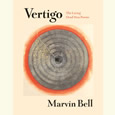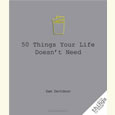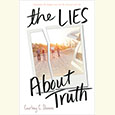Rolling Back History
No Choice takes readers to the heart of post-Roe America
Becca Andrews grew up in a conservative West Tennessee town and graduated in 2013 from Middle Tennessee State University, where she was my student. She then moved to California, where she earned a master’s in journalism from the University of California at Berkeley in 2015 and worked for seven years on the staff of Mother Jones magazine. Her new book, No Choice: The Destruction of Roe v. Wade and the Fight to Protect a Fundamental American Right, grew out of a 2019 Mother Jones story about the ordeal a Mississippi woman faced trying to get an abortion.
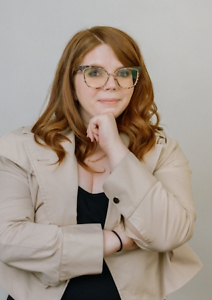
The culmination of three years of research and interviews, No Choice includes stories of women who had illegal abortions before the 1973 Roe v. Wade decision, those who worked in abortion collectives such as “Jane” in Chicago, physicians who provided abortions both before and after Roe, and many activists. Intriguingly, Andrews begins the book by stating, “For twenty-three years, I was vehemently antiabortion.” Over time, she writes, her views changed as she let in perspectives other than those she grew up with.
Andrews answered questions from Chapter 16 via email.
Chapter 16: You say at the outset that you grew up in a small religious community and were adamantly anti-abortion until you were 23. How do your earlier views lend insight into possible ways to bridge divisiveness on this issue? How can we all talk to each other?
Becca Andrews: The memory of the strength of that conviction gives me an empathy that I think might be otherwise hard to find. I remember it as an unwavering belief that abortion was murder, and murder is not something that I’ve ever questioned to be wrong. But it was also overly simplistic. You don’t know what you don’t know, and I was so young — I didn’t know peers who had needed abortion care, and I was so ignorant about systemic inequalities.
On the flip side of that, the vast majority of people who identify as antiabortion are not bad people. This is almost certainly going to come off as more Pollyanna-ish than I would like, but I actually think that most people are trying to do their best most of the time. I was. As a reporter, I am always seeking the humanity in the story. If the story is a simple good-versus-evil trope, then there’s probably a lot missing.
As for how we talk to each other, I truly just try to meet people where they are, and as a journalist, I get to do that. As a person trying to navigate their way through society, particularly in a country that has seen the very fabric of democracy altered by disinformation, I don’t know. Sometimes open, honest, humble dialogue is enough. Sometimes it isn’t.
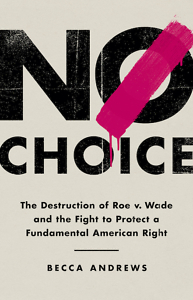 Chapter 16: I was surprised to learn about the Clergy Consultation Service, a multi-faith community, led by Baptists, that helped women find safe abortions before Roe. How might this history help people nowadays reconsider assumptions about the relationship between religion, especially Christianity, and reproductive freedom?
Chapter 16: I was surprised to learn about the Clergy Consultation Service, a multi-faith community, led by Baptists, that helped women find safe abortions before Roe. How might this history help people nowadays reconsider assumptions about the relationship between religion, especially Christianity, and reproductive freedom?
Andrews: Oh, I love this question. I’m obsessed with the CCS. They challenge everything we think we know about the Christian faith and abortion. I love the way the clergypeople in the CCS would point to Scripture, to edicts about love and mutual aid and caring for the least of these as their moral duty to help abortion seekers. To me, personally, it is as Christlike as it gets.
As a former evangelical Christian, of course I would love to see Christians who cite their faith as a reason for their antiabortion beliefs engage sincerely with these ideas. I would also love to see more people expand their idea of what a Christian is. There are so many people of faith working in abortion rights at present, too, and their faith is real and beautiful and powerful. Equating Christianity with the Religious Right in this country is reductive, and I hope this chapter challenges some of those stereotypes even in modern times.
Chapter 16: Your book is full of personal stories — not only stories of those who’ve had abortions but of providers and activists, including an interview with an anti-abortion activist. Why is telling people’s stories important?
Andrews: As a Southerner, I was born into a culture that values storytelling. We use storytelling for everything — to pass down recipes, family history, lessons that teach us how to move through the world safely. Stories allow us to connect with each other, to form communities, to live. We are comprised of stories. How better to capture the complexities of abortion?
Chapter 16: There is a lot of pre-Roe history in your book, but it occurs to me that you yourself have documented the current moment in history. How do you think the Dobbs decision will be viewed historically 50 years from now?
Andrews: History is so cyclical. It comes in waves. In 50 years, I think — I hope — that we’ve made greater strides toward justice and equality, and that the Court has found the ruling to be unconstitutional. What pre-Roe history shows us is that, although Justice Samuel Alito’s opinion cites American history often, it is really only taking into consideration the histories of those who have traditionally held power in this country (that would be cisgendered white men). Alito and his peers do not hold the histories of Native peoples and people of color with the same reverence. Hopefully 50 years is long enough for that to finally change.
Chapter 16: One of my favorite observations in the book is “Women’s bodies are palimpsests of sexist medical presuppositions, influenced by and under the influence of abortion stigma,” with complaints often disregarded as “hysteria” — a word rooted in the Greek for “womb.” Why does this persist?
Andrews: Why does this persist indeed?! Why do any stereotypes persist? It’s about power — who has it, who doesn’t, and who could take it. Any more than that, I reckon you’d have to ask someone who identifies as male.
Chapter 16: After several years in San Francisco, you’re back in Nashville, and much of your book is about abortion in the South. What can those in more liberal areas, who often stereotype the South, learn from the book?
Andrews: Oooh, you’re gonna get me up on my soapbox here. My dearest wish is that folks with more privilege who live in those areas would read these stories and relate to them without projecting their assumptions about the South onto people. Southerners deserve autonomous reproductive health care, just like everyone else does. We don’t deserve to be punished by virtue of where we live. We also don’t need to be saved. The most incredible activism in the country is happening — been happening! — in the South. If people outside the region believe in the change that those activists are fighting for, then invest in those leaders. They are the experts. Donate to Southern abortion funds, y’all.
Chapter 16: If you could have your way, what would reproductive freedom look like in America?
Andrews: Everyone would have access to full-spectrum reproductive health care. That’s comprehensive sex education, birth control options presented in scientific basis without stigma, abortion care on demand, full maternal health care, infant care, post-partum care. That’s universal child care. Paid family leave. Universal health care. All of it. It’s all connected.
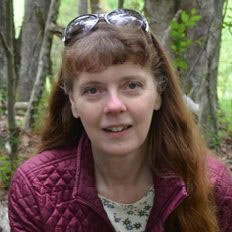
Jane Marcellus is a writer whose published work includes literary nonfiction, critical analysis, and journalism. Her work was listed as “Notable” in Best American Essays 2018, 2019, and 2020.

